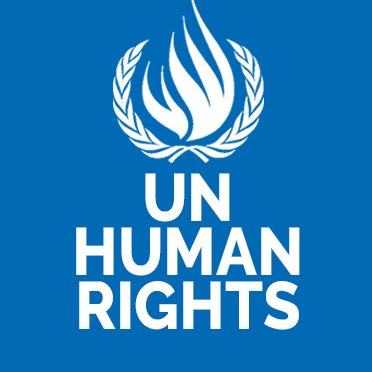GENEVA (6 June 2018) – UN human rights experts have condemned a five-year jail sentence handed to Mr. Tashi Wangchuk by a Chinese court for his work promoting cultural and linguistic rights of the Tibetan minority of China. The Intermediate Court in Yushu, Qinghai province, made public its verdict on 22 May, nearly five months after hearing the case against Mr. Wangchuk.
Mr. Wangchuk was arrested in January 2016 for participating in a documentary in which he appealed for education in the Tibetan minority language and for the right of Tibetan people to partake in their cultural life. He has been held in detention since his arrest.
The Court found him guilty of “incitement to separatism”.
“We are gravely concerned about the sentencing of Mr. Tashi Wangchuk, and the sanctioning of his right to freely express his opinion about the human rights of the Tibetan minority of China,” the experts said.
“Governments should under no circumstances undermine or repress legitimate human rights advocacy and action, such as in this case, using national security, public order or anti-terrorism discourses”, they added.
“It is deeply concerning that this sentencing came after we issued two joint communications calling for his immediate release and for all of the charges to be dropped,” the experts said.
“We asked the Government to provide information about specific measures undertaken to promote and protect the linguistic and cultural rights of the Tibetan minority. We regret that, to date, the Government of China has not yet provided us with a satisfactory response.”
In December 2017, the UN Working Group on Arbitrary Detention issued an Opinion which found that Mr Wangchuk’s detention was arbitrary and in contravention of the Universal Declaration of Human Rights.
“Once again, we strongly urge the Chinese authorities to comply with their international human rights commitments, to grant Mr. Wangchuk immediate release and accord him an enforceable right to compensation and other reparations.”
ENDS
*The experts:Ms. E. Tendayi Achiume, Special Rapporteur on contemporary forms of racism, racial discrimination, xenophobia and related intolerance; Ms. Karima Bennoune, Special Rapporteur in the field of cultural rights; Mr. Fernand de Varennes, Special Rapporteur on minority issues, Mr. José Antonio Guevara Bermúdez, Chair-Rapporteur of the Working Group on Arbitrary Detention, Mr. Michel Forst, Special Rapporteur on the situation of human rights defenders; Mr. David Kaye, Special Rapporteur on the promotion and protection of the right to freedom of opinion and expression
Special Rapporteurs are part of what is known as the Special Procedures of the Human Rights Council. Special Procedures, the largest body of independent experts in the UN Human Rights system, is the general name of the Council’s independent fact-finding and monitoring mechanisms that address either specific country situations or thematic issues in all parts of the world. Special Procedures’ experts work on a voluntary basis; they are not UN staff and do not receive a salary for their work. They are independent from any government or organization and serve in their individual capacity.
For further information and media requests, please contact Mr. Anis Anani (+41 22 917 91 67 / aanani@ohchr.org ) Damianos Serefidis (+41 22 917 96 81 / dserefidis@ohchr.org )
UN Human Rights, country page: China
For media inquiries related to other UN independent experts please contact
Jeremy Laurence, UN Human Rights – Media Unit (+41 22 917 9383 / jlaurence@ohchr.org)
